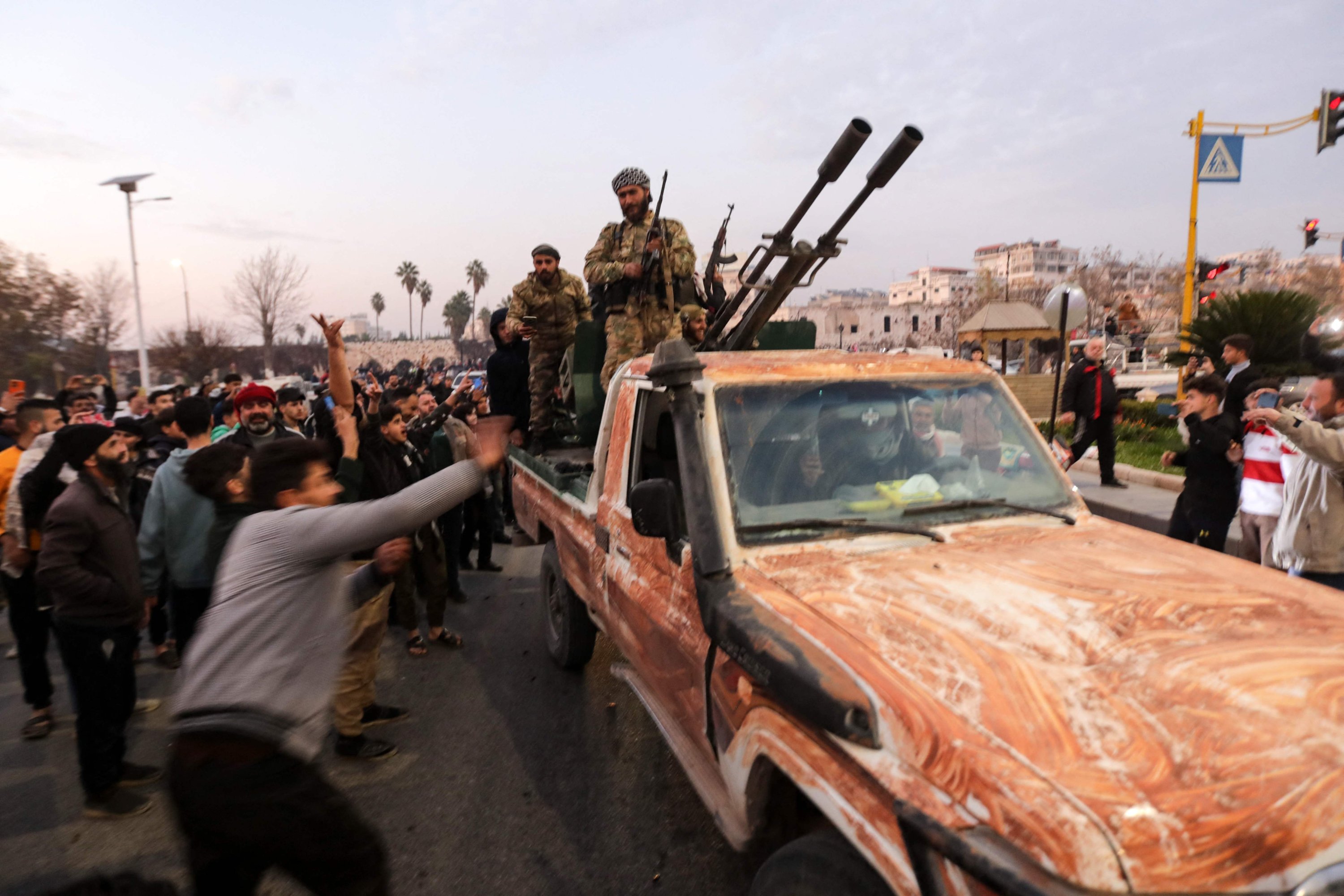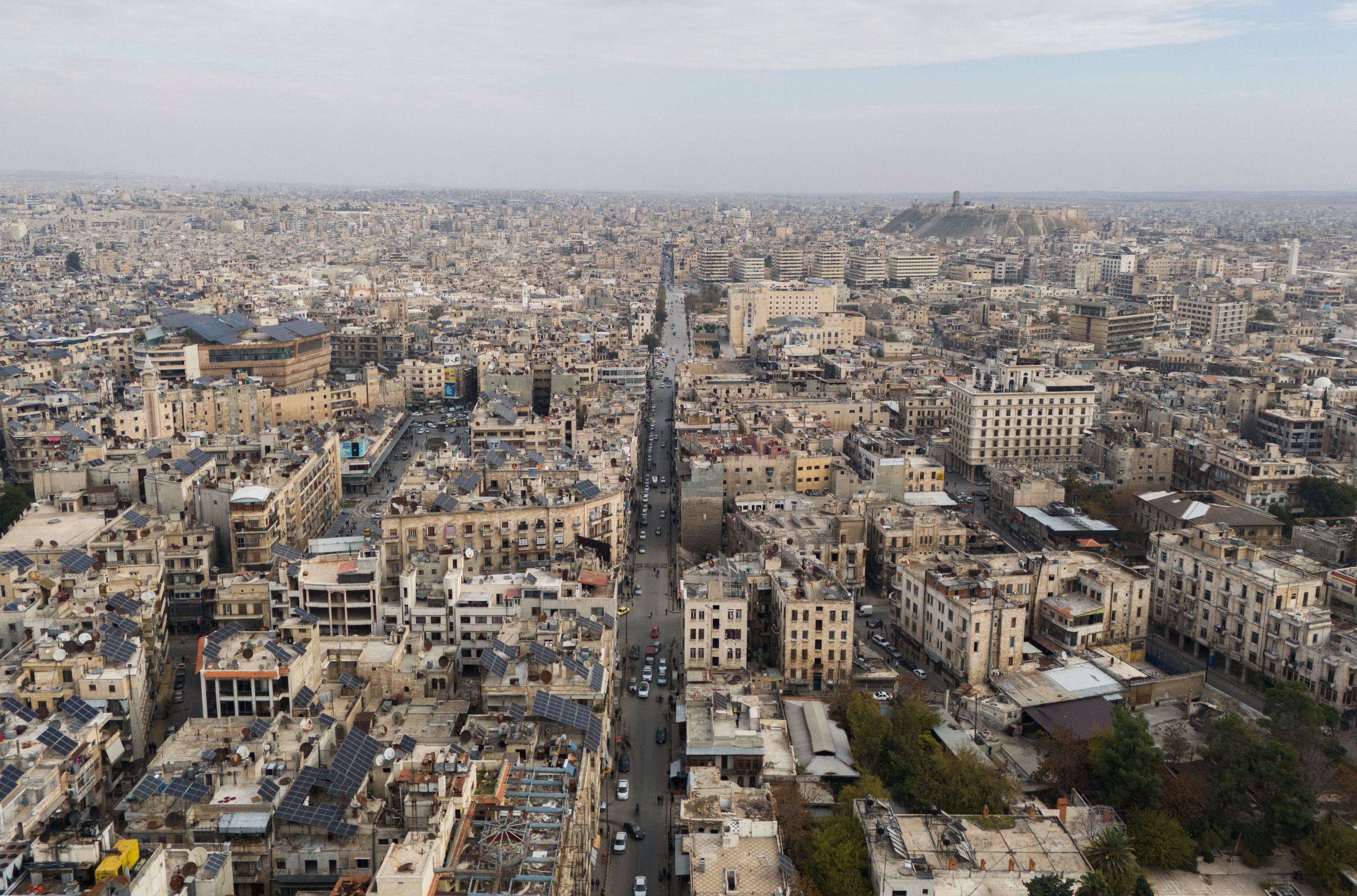© Turkuvaz Haberleşme ve Yayıncılık 2026
On Nov. 27, the military offensive launched by the Syrian military opposition against regime elements appears to have changed the balance of power on the ground and at the diplomatic table in the Syrian crisis. Before Nov. 27, the military and diplomatic balance favored the Assad regime, which was consolidating its political power in the diplomatic arena. On the one hand, Bashar Assad was once again seen as a political interlocutor in the Arab League. At the same time, the diplomatic normalization process between Ankara and Damascus continued, albeit with challenges. In fact, while Ankara expressed its readiness to meet with Assad, the Assad regime seemed reluctant to normalize relations with Türkiye. The Assad regime, seeking to reinforce normalization on the diplomatic front through military gains, pressured the opposition with attacks on Idlib, which is under the control of Hayat Tahrir al-Sham (HTS), and also increased its attacks on areas controlled by the Syrian National Army (SNA) along with the PKK terrorist group's Syrian wing YPG. However, the military offensive that started on Nov. 27 significantly altered the military and diplomatic balance on and off the field.
On the military front, the opposition captured Aleppo, whose strategic position is indisputable. They expelled PKK/YPG elements from Tal Rifaat, gained control of the city and reached a point where they could take control of Hama. The capture of Aleppo allowed the opposition to increase its military capacity and gain operational dominance.

On the diplomatic front, the opposition has gained substantial political ground. In the coming period, if a diplomatic agreement is reached to consolidate these military gains, discussing a new era in Syria may be possible. This new era may prompt national, regional and international actors to reconsider their positions on Syria.
The military opposition’s capture of Aleppo is a strategic gain for the Syrian opposition. However, the opposition must maintain control over the areas gained after Nov. 27, particularly Aleppo. As of today, it appears that Tal Rifaat and Aleppo will remain in the hands of the opposition as military mobilization on the ground continues. In the event of a military operation against Manbij in the north, it is possible that the YPG will completely withdraw from this region. However, no steps have yet been taken in this direction. The operation against Manbij appears to be a strategic choice rather than a capacity issue. Hama's fall under the control of the opposition may accelerate developments on the ground and make it more difficult for the Assad regime to maintain its defensive position. If the opposition turns to Homs after Hama, it will radically change the picture on the ground and weaken the regime’s military and political resistance.
The opposition has many advantages that give it operational independence from the regime. Most importantly, the Assad regime forces have lost their strategic advantages relative to the opposition’s military capabilities. During the last four years of relative de-escalation, the Assad regime has been unable to modernize its forces and has, therefore, had to rely on militias to sustain its military strength. In contrast, the opposition has increasingly acted more like a regular army than a non-state military organization. In particular, the improvements in their weapons capacity, military capabilities and intelligence activities have given them a significant advantage over the elements of the Assad regime. As seen in Ukraine, drones have paralyzed Assad’s mechanized troops, causing heavy casualties or forcing them to retreat quickly. At this point, the HTS has increased its drone capacity at a strategic level, significantly impacting the ground.
The increased HTS and SNA troop numbers, joint operations between military factions and enhanced tactical maneuvering capabilities have allowed the military opposition to extend its reach over a wide area. The military equipment and ammunition captured in the last 10 days, along with territorial expansion, have enabled the opposition to deepen its military power. In this context, the military opposition has gained air defense system capabilities and a small air force that can be used occasionally. In terms of armored vehicles, the opposition captured military equipment and ammunition from regime military factories and depots, enabling them to gain strategic superiority over the Assad regime forces and militias.
The Russian and Iranian factors are also among the opposition’s advantages. Russia has been unable to stop the opposition’s rapid advance, either by choice or due to a lack of capacity. Russia has carried out limited airstrikes because of the ongoing war in Ukraine, but these attacks failed to halt the opposition’s progress. Iran, on the other hand, has struggled to mobilize its national forces and transfer reinforcements. The Israeli targeting of Iranian elements in Syria has already weakened Iran as an actor on the Damascus axis. If the Assad regime forces fail to launch a counter-offensive in the coming days, this will allow opposition forces to consolidate their military gains and maintain their strategic superiority.
The diplomatic front will also be shaped by possible developments on the military front. At this stage, regional actors seem to be positioning themselves to prevent the Assad regime from becoming a target in Damascus. Iran is trying to bring in reinforcements to push back the opposition’s advance and is attempting to convince Türkiye to halt the opposition’s progress.
Ankara’s position is clear. Ankara has stated that the opposition’s military operations are not under its initiative and that it prioritizes the preservation of Syria’s territorial integrity. Ankara has two main priorities. The first is to prevent a new wave of migration to Türkiye if the conflict deepens and prolongs. The second is to address the possibility of terrorist organizations exploiting the conflict to undermine Syria’s territorial integrity. For this reason, the U.S.-backed military mobilization of the YPG in northeastern Syria has become a process closely monitored by Türkiye. If this situation continues, Türkiye may abandon its cautious approach.
Countries such as Iraq and the United Arab Emirates (UAE) have also made statements supporting the Syrian regime. Although they have not yet provided military support to the regime, the role of regional actors is critical in clarifying diplomatic balances.
Although Ankara views the developments on the ground as advantageous in many respects, it maintains a cautious diplomatic position. The capture of Tal Rifaat minimized the PKK/YPG terrorist threat west of the Euphrates and created a new opportunity for the security of safe zones. For now, taking Manbij remains an option on the table. If military tensions increase and clashes deepen, Manbij could become a target. Ankara’s other priority is Syrian refugees. The fall of Aleppo to the opposition represents a historic opportunity for the 1.2 million Aleppo residents living in Türkiye to return to their homes.

Ankara seems to have increased its diplomatic leverage against Assad with the new situation. The Assad regime now sees President Recep Tayyip Erdoğan’s normalization effort as a missed opportunity. Türkiye could first strengthen negotiations between the opposition and Damascus and then take steps to repair Ankara-Damascus relations. Ankara is aware that regional actors are watching closely and is acting within the framework of diplomacy.
Ankara is the only actor that can consolidate the opposition’s military gains on the ground. Therefore, it seems to have a stronger position in the Syria file. This new diplomatic power places Ankara in a stronger position concerning U.S. Syria policy and the PKK/YPG issue.
The positions of Russia and the U.S. may become more apparent in the coming days. While Russia remains focused on Ukraine, the U.S. appears to be focused on Israel. As the new dynamics on the ground unfold, Syria may become a priority for U.S. policy.
If the opposition preserves its military gains, a new status quo may emerge in Syria. If the opposition advances further and applies direct military pressure on Damascus, Syria could become the center of a deeper regional conflict.
